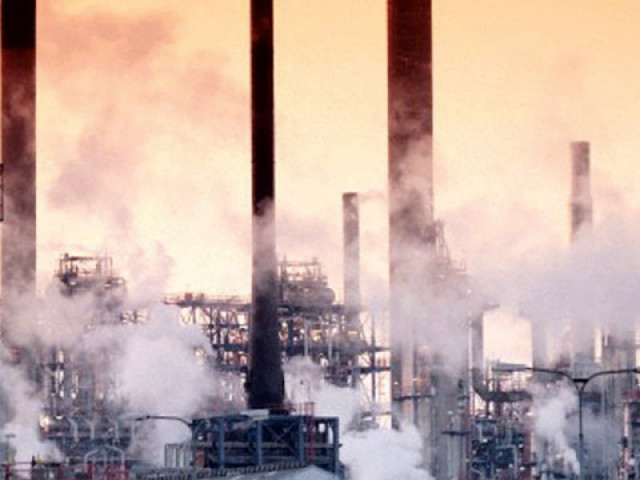Time to move on: About time we sell stake in Byco, says Abraaj partner
Pakistan’s largest refinery aims for full capacity utilisation from this month.

The group has also constructed tanks with capacity to store 228,000 tons of crude and petroleum products. PHOTO: FILE
Private equity firm Abraaj Capital wants to sell its stake in Byco International Incorporated (BII), which has built the integrated petroleum company including 155,000 barrels per day refining capacity in Pakistan, officials said.
Abraaj bought 40% shares in 2008 for $180 million at a time when BII embarked on an ambitious plan of building the country’s largest refinery supplemented by country-wide fuel stations and a petrochemical complex to make products like paraxylene.
“We are seeking an exit but obviously we are not desperate sellers,” says Tabish Gauhar, a partner in Abraaj, which also has investments in Pakistani businesses like K-Electric and Mannan Shahid Forgings.
“Abraaj invests on behalf of its investors and I think it’s about time we sell our stake in Byco.”
Gauhar said that the Dubai-based private equity wants to leave opportunity for the new investor to add value. “If for instance we continue to stay and invest then the valuation might go up a lot and it would be difficult to find a new investor.”
He hopes new investors would take an interest in building a hydrocracker, which converts low quality fuel into high margin jet fuel and diesel.
“Whoever comes after us will be an oil major company that will bring a lot of technical expertise.”
Unlike K-Electric where Abraaj runs the day-to-day management affairs, its role in BII is limited to board meetings and long term strategic decisions.
The rest of the BII is owned by the Abbassciy family.
BII has two oil refineries – a 35,000bpd plant and a newer one with a capacity of 120,000bpd. Over the years, its petroleum marketing company has expanded and now runs 245 fuel stations.
The group has also constructed tanks with capacity to store 228,000 tons of crude and petroleum products, the largest in Pakistan. Besides this, Byco has its own floating terminal, which can handle even the biggest of vessels.
But its new refinery, which is located in Hub, Balochistan, has not been able to run on full capacity since the plant was inaugurated earlier in the year.
The main reason for that was the difficulty in taking high speed diesel (HSD) to customers, most of which are based in Punjab and further north.
Chairman and CEO of BII Amir Abbasscisy says an alternative arrangement has been made to ferry diesel from its refinery to Port Qasim from where it could be pumped upcountry through cross country white oil pipeline. HSD makes up 40% of the refinery’s output.
“We will use our SPM (single point mooring) facility to ship the diesel to Port Qasim,” he said. “A 28-inch pipeline will pump the product from the refinery to a chartered ship, which will be used to move the cargo.”
The entire operation from filling 50,000-ton tanker, shipping it to Port Qasim and then offloading it there, will take three-and-a-half days, he explained. “And our cost would be 70 paisa per litre. Almost all of it is covered under the pricing formula.”
Storage tanks with capacity to hold 72,000 tons of HSD have just recently been built near the refinery site for the purpose. This mode of transportation will start working from May 25, 2014, and refinery’s utilisation will gradually increase, Abbasscisy said.
Initially when the refinery was being set up, BII hoped to use Asia Petroleum Limited’s (APL) 82 kilometer long pipeline to move diesel to Power Qasim. But negotiations with the APL sponsors didn’t materialise.
The APL pipeline is used to supply furnace oil to Hub Power Company’s 1,300MW power project, which is next-door neighbour of Byco’s refinery. “They charge $12 per ton to transport that furnace oil from the port. We couldn’t have possibly matched that.”
Abbasscisy praised Abraaj Capital for its patience with its investment in Byco.
The new refinery, which the company says scores 7.6 on Nelson Complexity Index, has been built at a cost of around $480 million.
Another $95 million have been spent on petrochemical plant, which would product raffinate, C9, benzene, paraxylene and other products.
Published in The Express Tribune, May 8th, 2014.
Like Business on Facebook, follow @TribuneBiz on Twitter to stay informed and join in the conversation.



















COMMENTS
Comments are moderated and generally will be posted if they are on-topic and not abusive.
For more information, please see our Comments FAQ